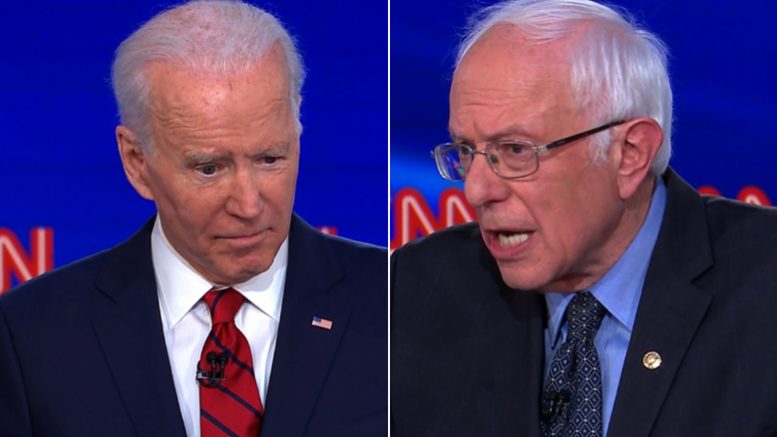Why did Bernie Sanders fail to win the Democratic nomination in 2020?
Let’s start with three explanations that don’t work.
1. The Democratic party establishment conspired to stop him. That was only partly true in 2016 – and not true at all in 2020. One of the things Sanders did after 2016 was force the Democratic Party to reform, ensuring (among other things) that so-called “super delegates” would have much less influence than before. In 2016 there was a lot of evidence of the party machine working behind the scenes to elect Clinton, using devious methods. That doesn’t seem to be the case today.
2. He was too left wing. This is a mainstream media favourite. Yes, Sanders called for a “political revolution” when he really meant social democratic reforms, looking more towards Denmark than Bolshevik Russia as his model. And yes, he got caught up in a pointless argument about Castro’s Cuba (when he actually said nothing different from Obama). It turns out that his main ideas – medicare for all, free tuition in public universities, etc. – are still very popular.
3. He wasn’t left-wing enough. This is the default answer given by the far Left following an electoral defeat. But it makes no sense in a country like the US where Sanders was the most radical candidate for the presidency ever, in any major party. Can anyone seriously believe that had he argued for, say, nationalisation of industry that he’d have won the South Carolina primary?
So why did he lose?
His campaign made plenty of mistakes (as they did in 2016). Sanders should have done much better with African American voters and pensioners. But one problem with looking over the mistakes he and his campaign made is this: did Biden not make mistakes? Biden ran one of the worst campaigns ever, and in some states he won, he had no campaign at all. You cannot explain Sanders’ defeat based solely on the many anecdotes about this or that mistaken decision.
I think socialists have to be honest about why Bernie lost. And part of that reason is that he was a socialist politician in a country with no socialist movement.
The largest socialist group in the US has around 50,000 members, which is a drop in the bucket in a country of nearly 330 million people. Only a couple of leading American politicians, Alexandria Ocasio-Cortez among them, have self-identified as socialists.
Clement Attlee could not have become prime minister of the UK in 1945 without a strong Labour Party. None of Sanders’ favoured Scandinavian welfare states became that way without social democratic parties.
Having a socialist movement doesn’t necessarily mean an independent political party. It is entirely possible to imagine a powerful socialist faction inside the Democratic party. But that too does not exist – yet – in the US.
With Sanders out of the race, the question is whether his slogan “Not me – us” now becomes real, and whether a movement is born.
This article — my last in the series — appears in this week’s issue of Solidarity.
